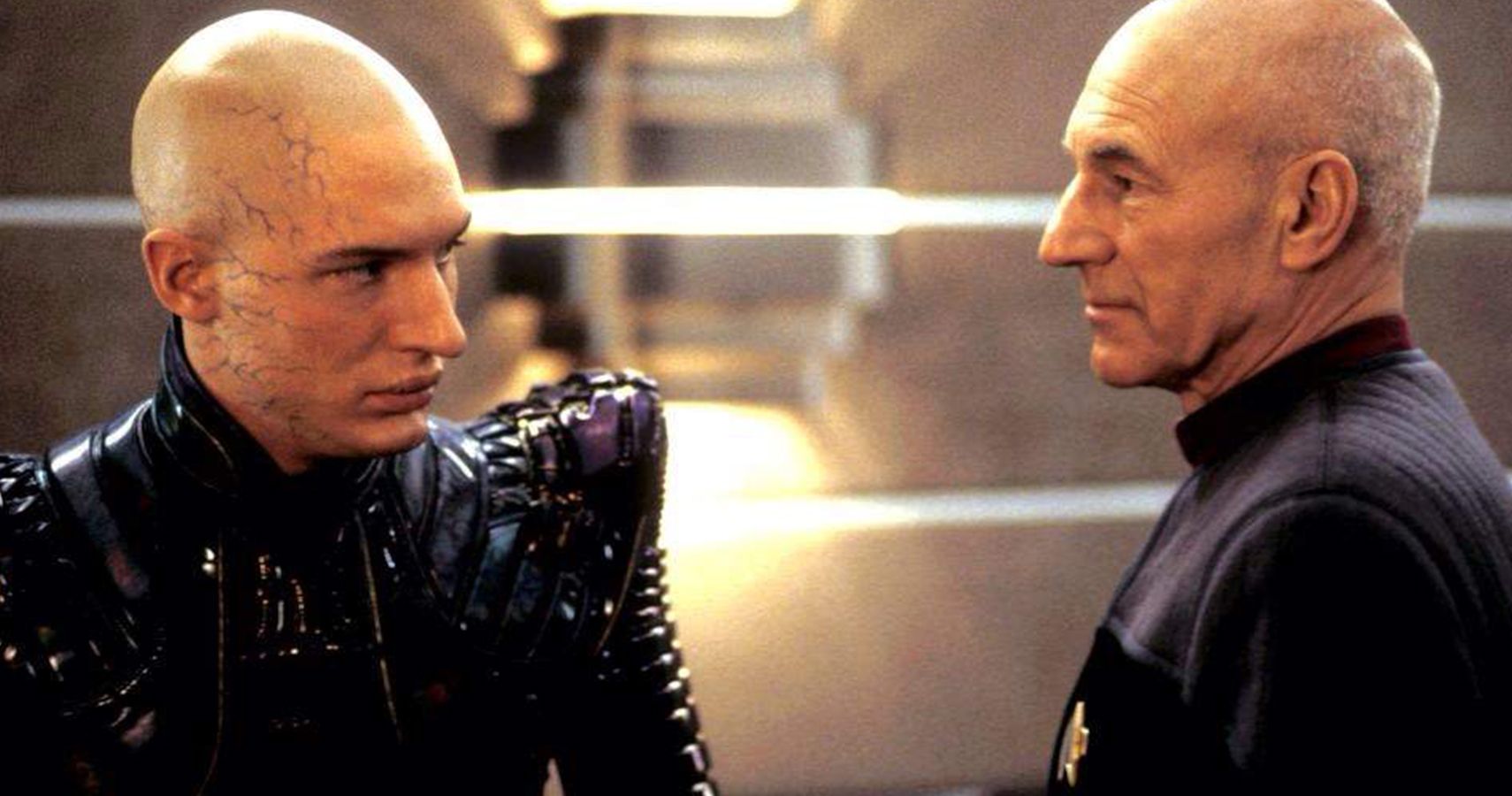
Star Trek: The Next Generation often gets mentioned among the best television shows of all time, and not just among sci-fi programs, either. Given its revered status among both sci-fi fans and fans of TV dramas, it's easy to forget that Trekkies were largely opposed to the show when it was first announced. Considering it an insult to Star Trek's original cast and characters to have a series full of unknown Enterprise crew members, there was a huge backlash against the show, the likes of which was seldom seen in a pre-internet, pre-social media era. And since it was similar fan outcry that got the original series back on the air after its initial cancellation, dismissing the wishes of Star Trek fans isn't always a wise idea.
Fortunately, Paramount went ahead with TNG despite the negativity, and we're all glad that it did. Brilliantly blending Star Trek's old school sensibilities with a more modern spin, and toning down the camp for a darker and more series vibe, TNG hit all the right notes, after a rocky first two seasons, that is. It was one of the most-watched shows on television in its prime, and it is an especially impressive feat for a syndicated series.
Unfortunately, a lot had to go wrong behind the scenes for the show to find its groove and achieve greatness. And even once it did, every decision that was made that guided TNG on both television and movie screens wasn't always the right one.
Here are 11 Last-Minute Changes That Helped Star Trek: TNG (And 9 That Hurt It).
20 Saved: Ignoring Gene Roddenberry's Disinterest In The Show
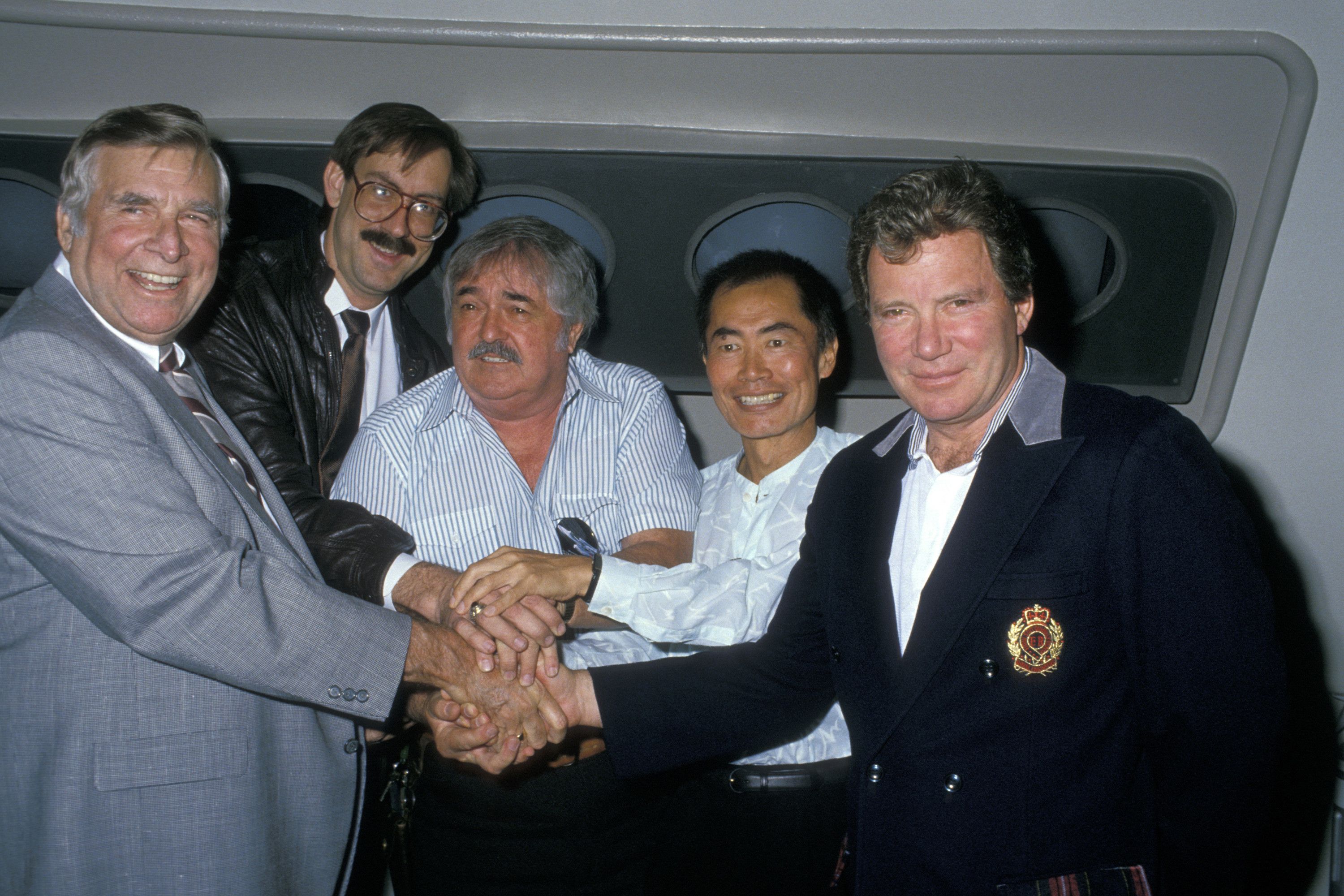
It probably seems like a no-brainer that Star Trek creator Gene Roddenberry would've been thrilled to see the franchise return to television, with TNG only being the second live-action Star Trek series in about 20 years. As it turns out, he was basically opposed to it altogether.
Though Roddenberry passed away in 1991 and can't personally confirm or deny how he felt about any of this at the time, most sources close to TNG and Roddenberry claim that he couldn't be convinced to get involved with a new Star Trek series after becoming bitter when his planned Star Trek Phase II series fell apart in the late-70s. Paramount had the power to made a new Star Trek series with or without him, and set about doing just that-- to which he eventually got on board, albeit reluctantly.
19 Hurt: Not Hiring George R. R. Martin
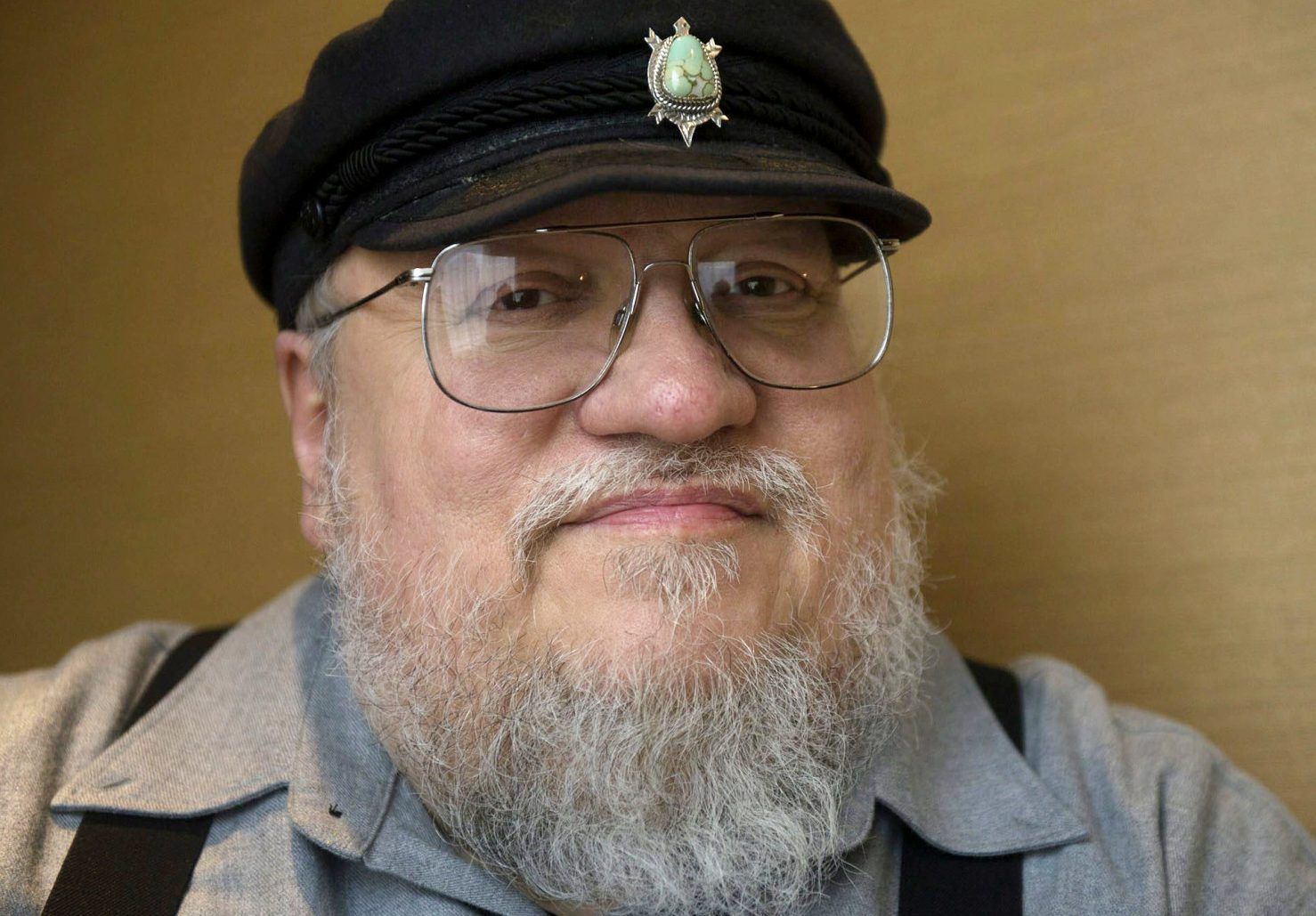
By the time TNG ended its run, nearly 200 writers had been involved in the show in some capacity. But TNG almost had a future legend in its already-stuffed writers' room who would go on to write one of the biggest book series-- that later inspired a hugely successful TV show-- of the last three decades.
It seems that a writer named George R. R. Martin had tried to get a job on the show when it was first bulking up its writing staff, but was turned down. According to Brannon Braga, who was one of the key creative forces behind the Star Trek franchise in the 90s, Martin being rejected was a "tragedy." When asked if Martin's style would've fit TNG, Braga replied "He is a genius. Of course, it would have worked. Absolutely, 100%."
18 Saved: Keeping The Borg Alive
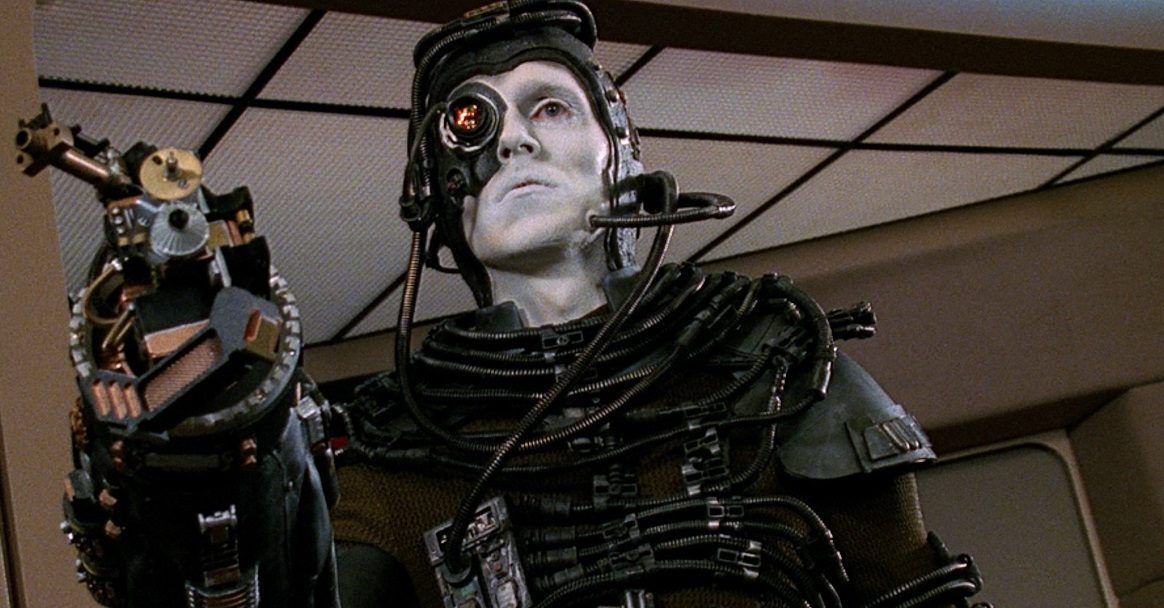
The introduction of the Borg into the world of Star Trek was one of the most significant contributions that TNG made to the franchise. In addition to the Borg being at the center of some of TNG's best moments on television and in film, the alien race's influence on the series has expanded beyond TNG-- most notably, in the form of Borg-gone-good Seven of Nine on Star Trek: Voyager.
If things had gone according to the original plan, however, the Borg would've only been part of one specific season two story arc that was to end with their permanent defeat. But after the writer's strike threw the production of TNG into upheaval and caused a shakeup with the show's staff, those plans were shelved and, thankfully, were never revisited.
17 Hurt: Changing Writers For The Second Two Films
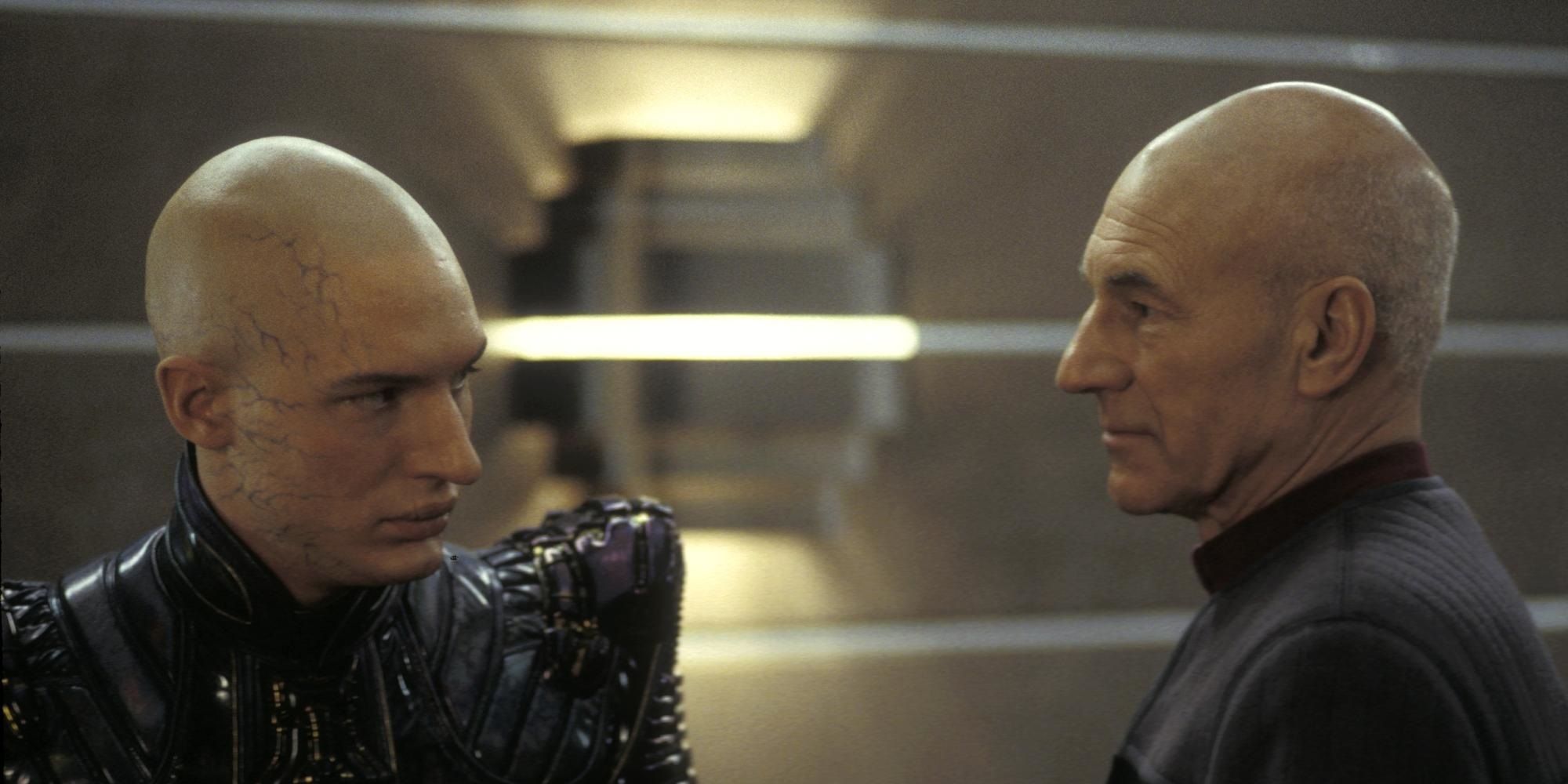
Generations-- the TNG crew's debut film-- was a box office success and served as a decent introduction to a new era of Star Trek films. Then things really took off with the release of the follow-up, First Contact, which remains one of the top-rated and best-loved Star Trek movies of all time.
Sadly, things quickly fell apart again for TNG's movie series, as Insurrection was a significant step down in quality from First Contact and Nemesis was so bad that it led to a seven-year break for Star Trek movies until the J.J. Abrams reboot. So what went wrong? Most notably, Brannon Braga's exit-- after co-writing the first two TNG movies, he chose to focus on Voyager instead of the film series, which struggled without his guidance.
16 Saved: Picard Not Being Another Kirk Type
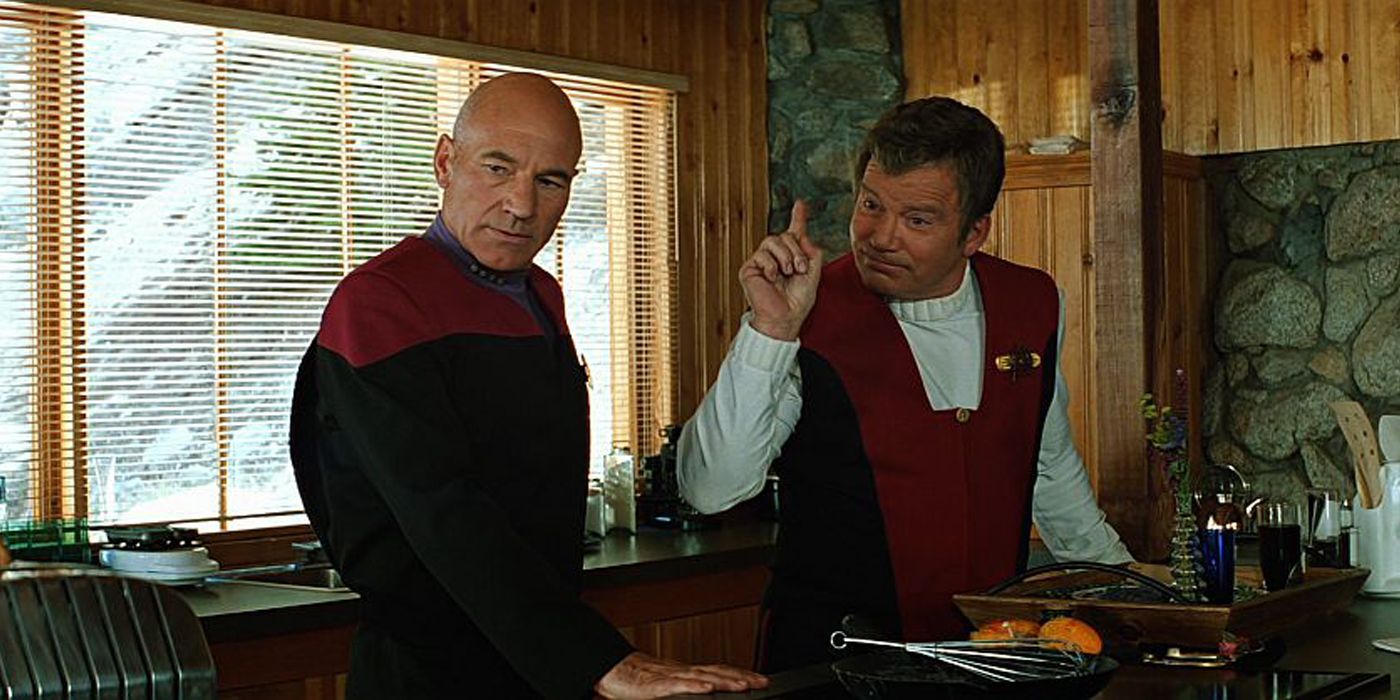
You can't blame Gene Roddenberry for having a strong affection for the original Star Trek crew. Those are the characters he first created and they lived on all the way through their then-final movie in 1991-- which happened to be the year of his passing. So it's natural that he wanted TNG to be something of a 2.0 of the original series.
There is one way he wanted TNG to emulate the original series. However, it was fortunately overridden by the rest of the creative team. His idea was to have the new captain basically be another Captain Kirk type. Despite who your personal favorite Star Trek captain might be, there's no denying that each crew should have their own unique captain, and that Picard's more stoic approach to leadership is a big part of what made TNG work.
15 Hurt: Hiring The Wrong Showrunner
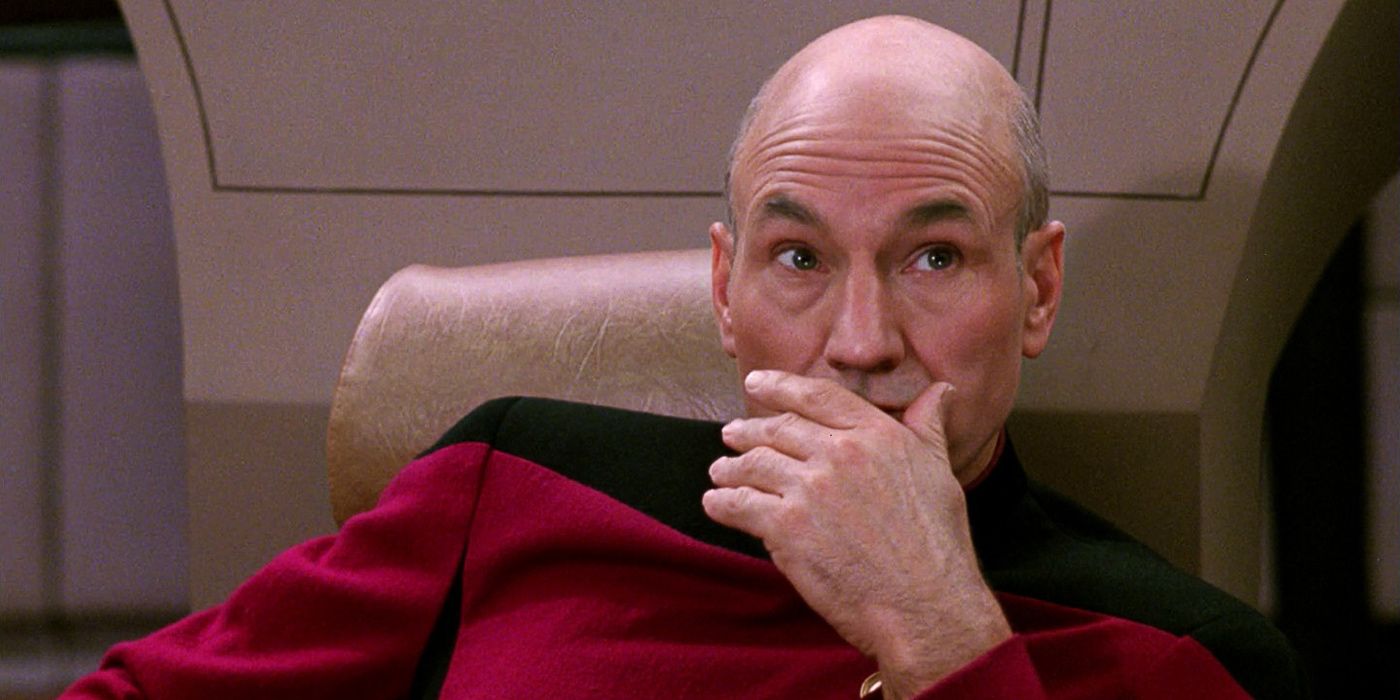
Once Gene Roddenberry finally gave in and began actually steering the TNG ship, he made some questionable choices in terms of creative staff. Most of his picks made sense to him as they were people who were willing to go to bat for him and support his vision, even in the ways it differed from everyone else's.
One such hire was Maurice Hurley, handpicked by Roddenberry to be TNG's first showrunner. And not surprisingly, Hurley quickly found himself at odds with most of the staff. The first two seasons of the show are considered inconsistent for this exact reason. In fact, even Roddenberry was butting heads with Hurley by the middle of season two. Hurley's exit coinciding with TNG's third season turnaround is definitely telling.
14 Saved: Convincing Gates McFadden To Return
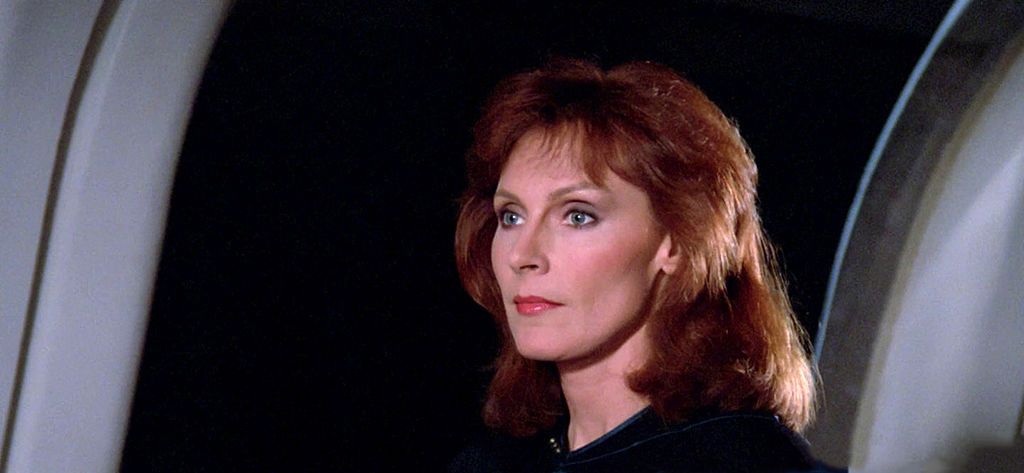
In only the second season of TNG, the show was already shedding major cast members-- most notably Gates McFadden, who played Dr. Beverly Crusher. Of course, she would return the next season and remained a part of the TNG world for as long as it continued to exist.
So what happened there? Reports slightly differ, but most seem to lead back to a conflict between McFadden and showrunner Maurice Hurley, with some inferring that he had didn't like McFadden being so vocal about her dissatisfaction with the way the show was being run. The fact that McFadden returned after Hurley's exit seems to support this. And while McFadden was reluctant to return, it was a personal phone call from Patrick Stewart himself that finally convinced her to give the show another shot. Leave it to Picard to make things happen.
13 Hurt: Recycling Plots From A Scrapped Series
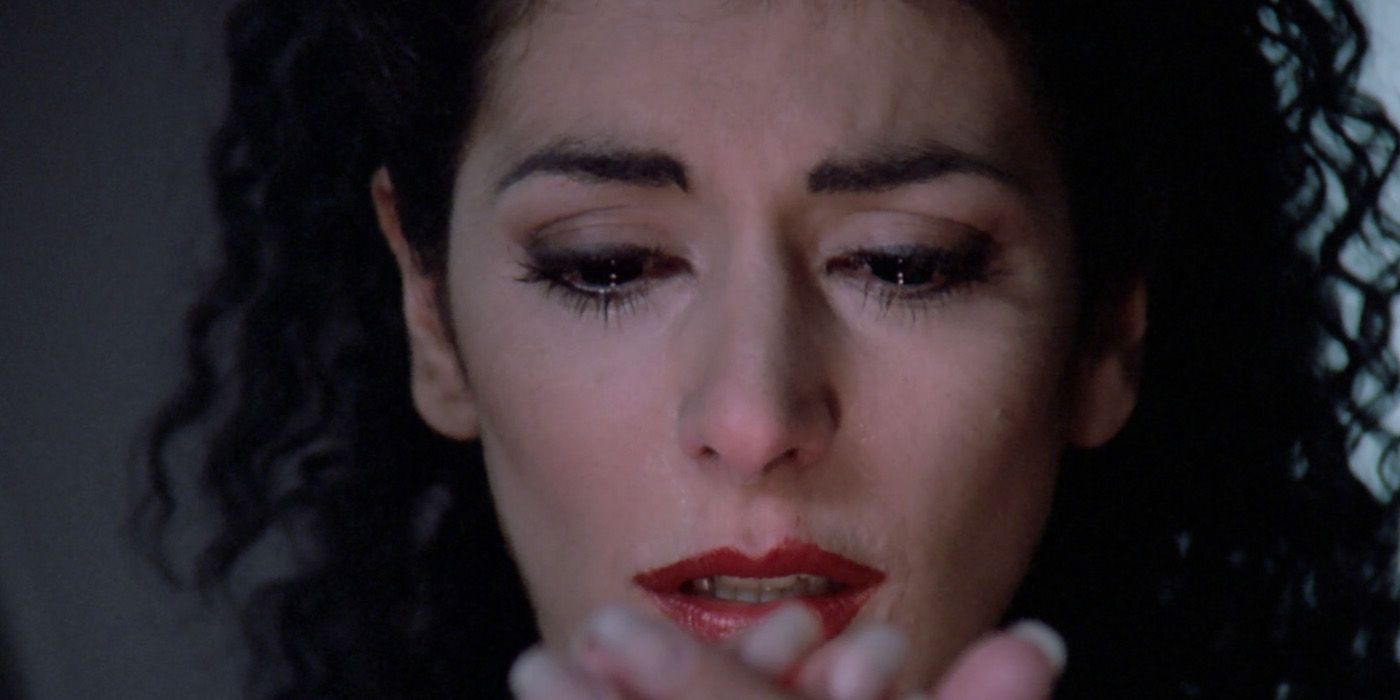
A writer's strike makes things difficult for an active television series, and sometimes there are various wheels already set in motion that make simply putting the show on hiatus until the strike is over impossible. When a major writer's strike hit early on in TNG's run, producers were forced to get creative with trying to get the second season finished up-- and in doing so, they made what turned out to be a decision that haunted the series forever.
The TNG episode "The Child" is often brought up when discussing the show's worst episodes, and the episode's story came from an idea that was going to be used from the scrapped 1979 series Star Trek: Phase II. There was probably a good reason why that show never got off the ground in the first place.
12 Saved: Not Having Picard And Data As One Borg Drone
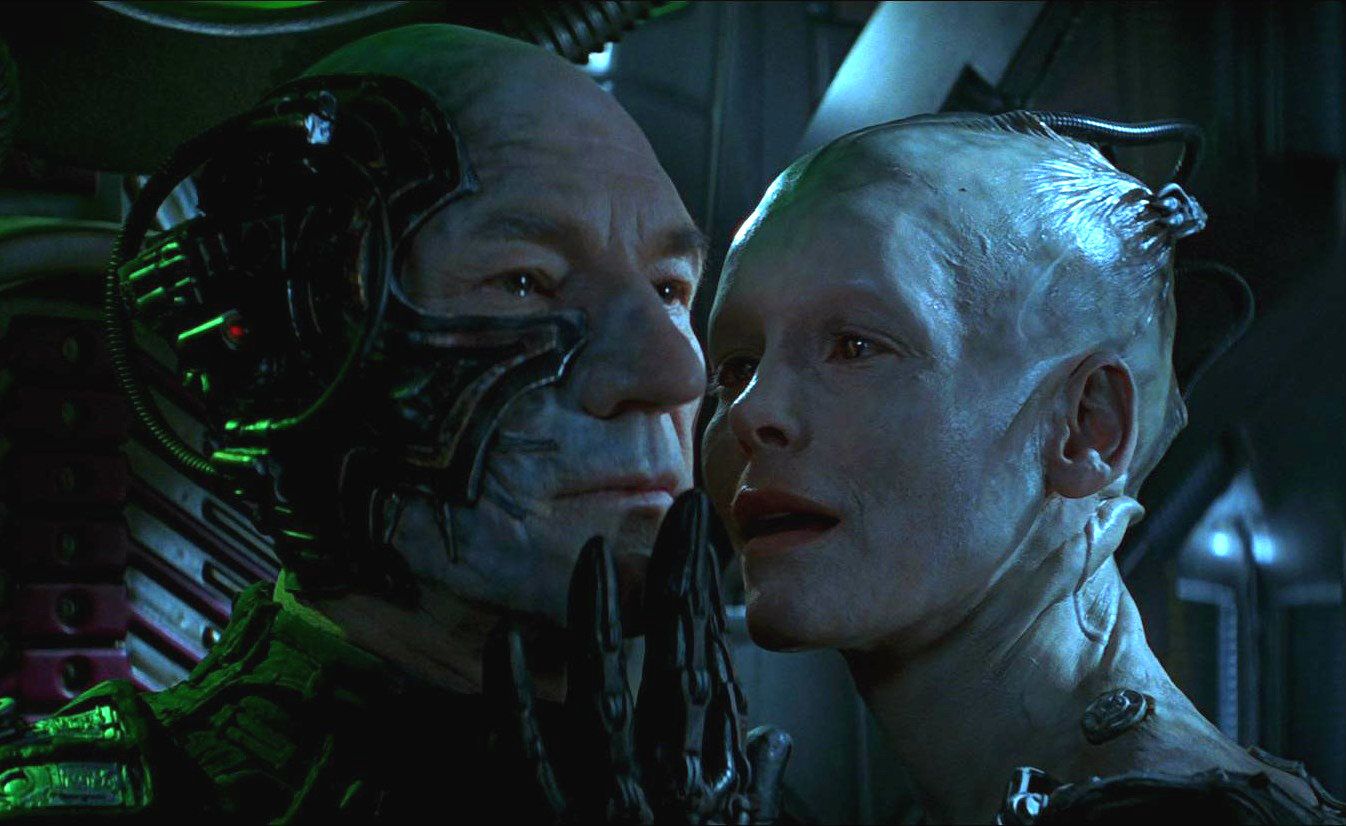
"Best of Both Worlds" is by far one of the best episodes of TNG. In this episode, Captain Picard gets assimilated by the Borg and is forever changed as a result. It's one of those episodes you show people as proof of why TNG was such a great show-- and if they still aren't convinced, they're never going to be.
In the early planning stages for that episode, the plot almost went a very different way, which would've completely changed the whole dynamic of the episode and what it meant for the future of Picard as a character. It seems that Picard and Data were actually going to both be assimilated into the same Borg drone. It is an interesting idea, but it is one that would've robbed the episode of all its power.
11 Hurt: Deanna Troi's Mother
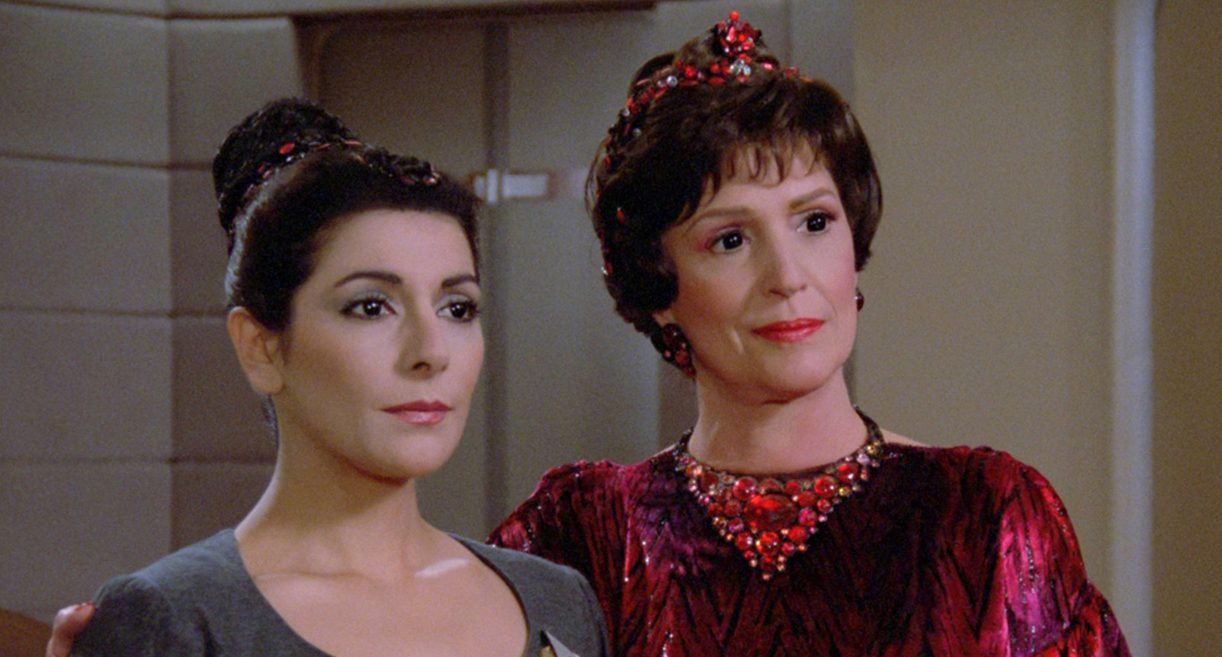
One particularly unfortunate remnant of Gene Roddenberry's influence over TNG was to have a female character who inhabited the role of the show's "eye candy." In this case, it was Deanna Troi. In fact, Roddenberry originally wanted her to have four of a certain body part-- but we won't get into all that, as it was an idea that was thankfully vetoed.
Luckily, Counselor Troi didn't stay shallow and got progressively more complex and less cliche as the series went on. But one aspect of her more one-dimensional days lingered, and that was her stereotypical overbearing mother character, Lwaxana Troi. Lwaxana always felt more like sitcom-level comic relief than a fully fleshed-out character-- and the fact that she was played by Roddenberry's wife ensured that she returned more times than she should have.
10 Saved: Having An Open Submission Policy For Story Ideas
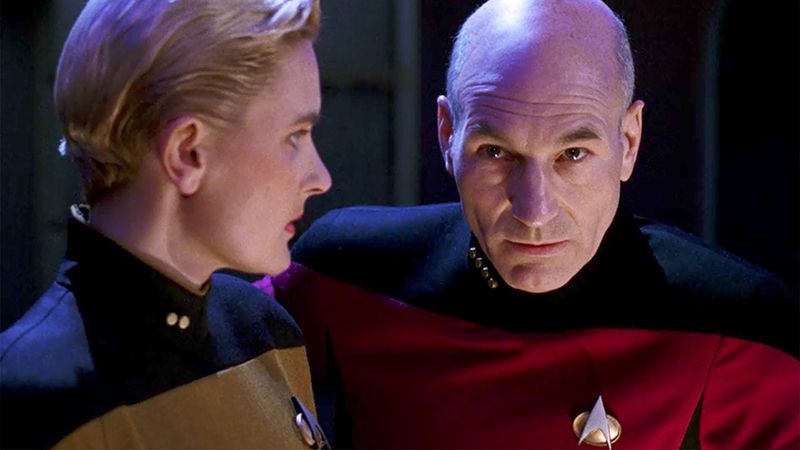
One thing that all aspiring writers know all too well is that you can't just send unsolicited scripts and story ideas to production companies in the hopes that someone will discover you or use your ideas. But that wasn't the case for Star Trek fans during the days of TNG. The show had an almost unprecedented open submission policy where anyone could send in script specs and have them be considered for the show.
As a matter of fact, that policy led to some great content for TNG, including one of the show's most acclaimed episodes-- "Yesterday's Enterprise"-- which was an idea that came from a submitted spec script. Longtime J.J. Abrams collaborator Roberto Orci, one of the writers of the 2009 Star Trek film, has called "Yesterday's Enterprise" one of his biggest influences as a writer.
9 Hurt: Not Giving Denise Crosby More To Do
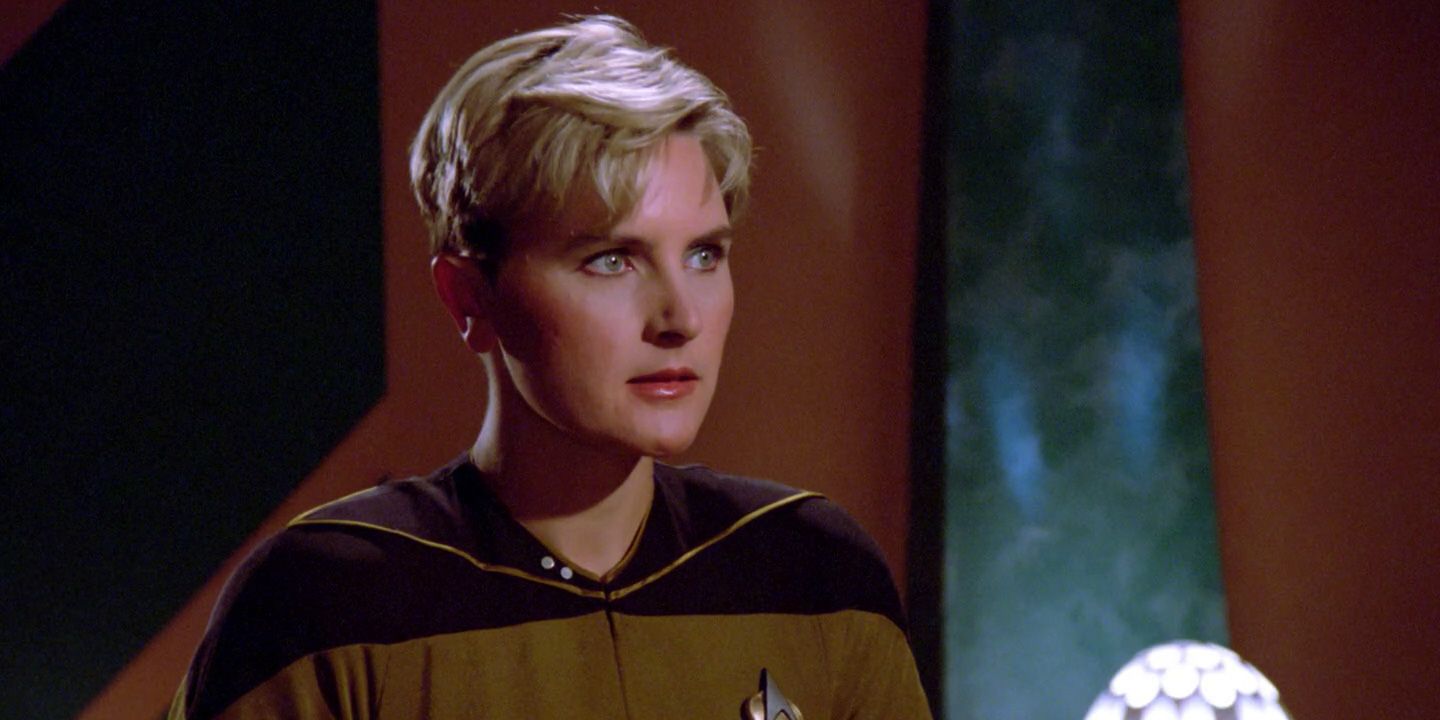
There was clearly a lot of behind the scenes turmoil in the early days of TNG. Many cast members have since gone on record in describing the environment as less than pleasant. While many stuck it out, some found it to not be worth the trouble and left the series before things got better. Denise Crosby, who played Tasha Yar, is perhaps the most well-known of these early by-choice exits.
Crosby has outright stated that she was miserable working on TNG, and since she felt her character wasn't given much of substance to do, she left the show during season one. It's a shame, because given her stellar performance in her big send-off in"Yesterday's Enterprise," it's obvious she had a lot to offer the show and the character.
8 Saved: Keeping Patrick Steward Bald

Seeing as how he didn't achieve massive mainstream recognition until his mid-40s, most of us have never known a "young" Patrick Stewart. Between Captain Picard and Professor X, his two most famous roles, Stewart has also never had much hair on the top of his head since becoming hugely famous. And that very nearly wasn't the case.
When first developing Picard as a character once Stewart signed on, it was briefly considered that he wear a wig so that he wouldn't be bald. If you aren't thoroughly convinced of what a terrible idea this would've been, look no further than the TNG episode "Violations," where we get a flashback to a young Picard with a hairpiece that makes George Costanza's look convincing.
7 Hurt: Using Of-The-Era Guest Stars
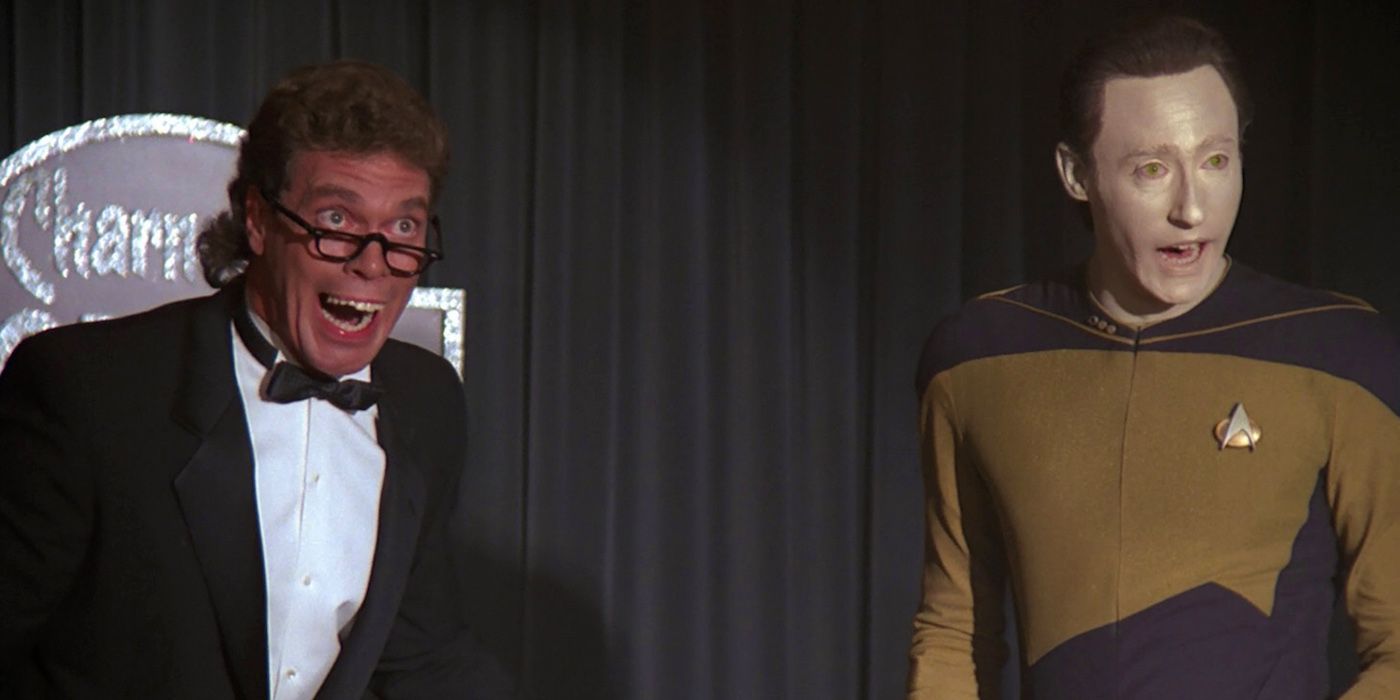
For a sci-fi series about the future that began airing in the 1980s, TNG has aged respectfully well and is pretty watchable to this day. There are only a few things that keep the show from feeling as timeless as it could, and one of those is the use of distracting of-the-era guest stars that firmly root the series in a specific time and place in pop culture.
It stands to reason that the "nostalgia" on TNG would lean heavily towards the era it was aired in, but some references hold up better than others-- such as using 80s comedian Joe Piscopo to play a comedy-teaching hologram. That Piscopo is also doing an over-the-top, early-SNL-flavored Jerry Lewis impression only makes things worse.
6 Saved: Making Lore Be Data's Evil Twin
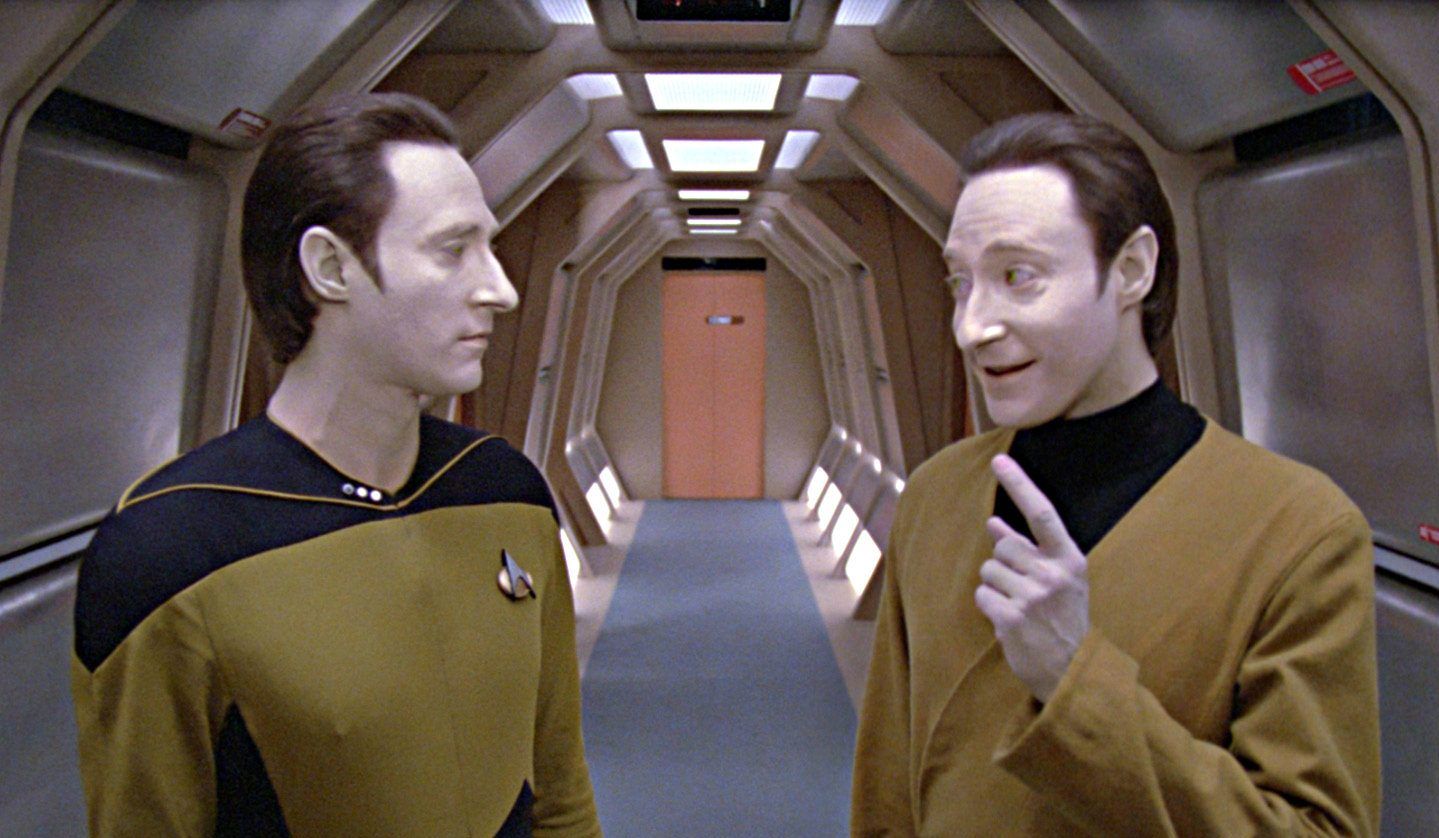
The "evil twin" trope might be a bit hard to swallow most of the times it is used, but when it is an android that has an evil counterpart, it's a lot easier to wrap your head around. And although Data's twin, Lore, was introduced during TNG's contentious first season, he went on to become a fan favorite antagonist throughout his next few appearances.
What makes Lore such a fun character is that he is capable of being more human, though in all the worst ways, than Data is. And all of that would have been lost if the original plan of Lore being female had remained in place, thus losing the dynamic where the two characters are opposite versions of the same "person."
5 Hurt: Abandoning The Romance of Picard And Dr. Crusher
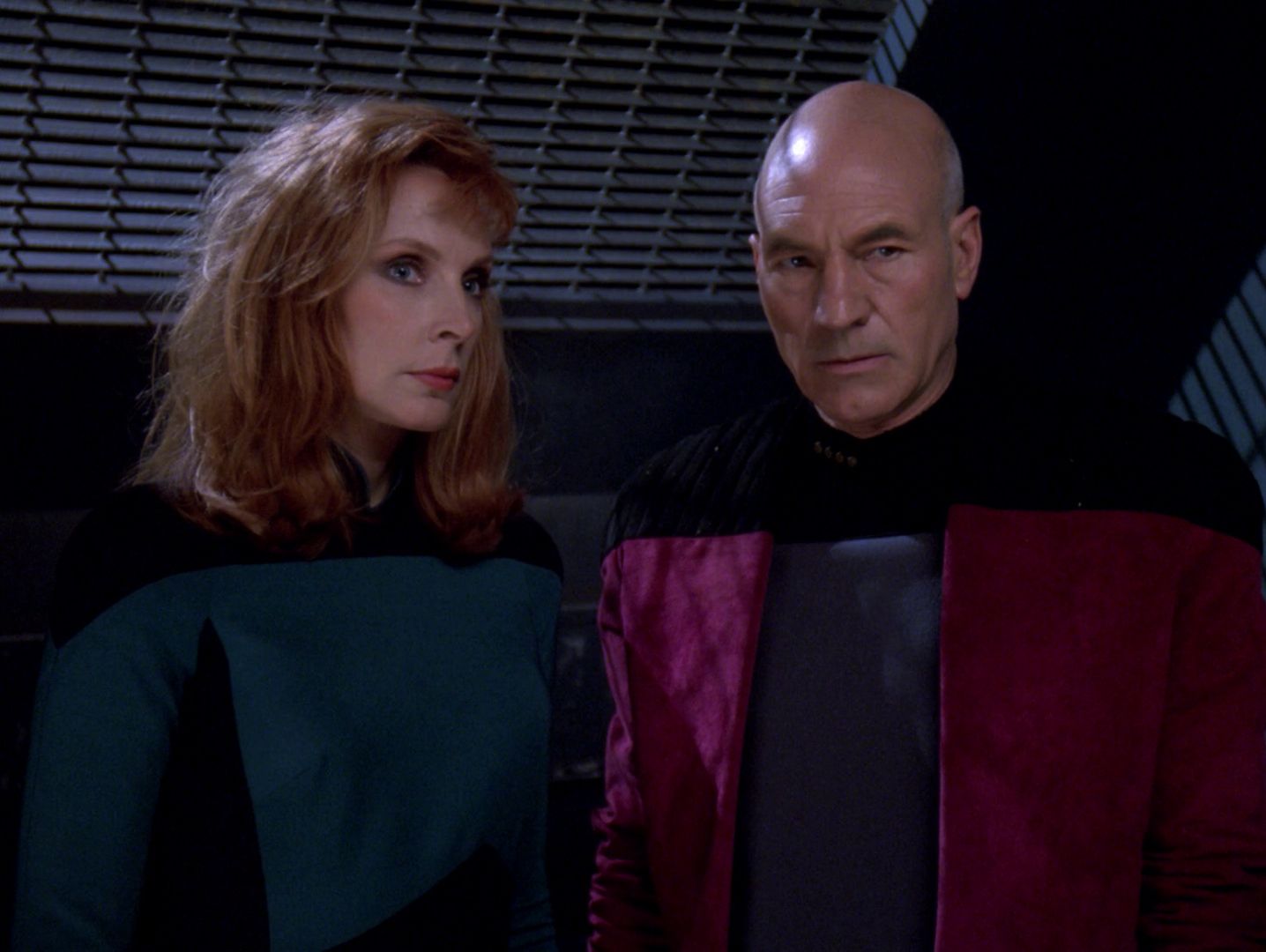
Many TV shows are built around an ongoing will they, won't they tension between two of the lead characters. Fans spend years watching the pair remain on the verge of a relationship and wondering when, or if, they'll ever actually get there. TNG had that in the form of Captain Picard and Dr. Crusher, two characters who clearly have feelings for each other but have the Federation rules that stand in the way of them having an actual relationship.
While it would've risked TNG jumping the shark to have the pair get together officially, it was more interesting when they at least were heading that way. When their courtship cooled after the episode "Attached," it seemed to be timed with giving Picard an excuse to have a romantic subplot with another woman in Insurrection, which just felt forced and weird.
4 Saved: Casting Levar Burton
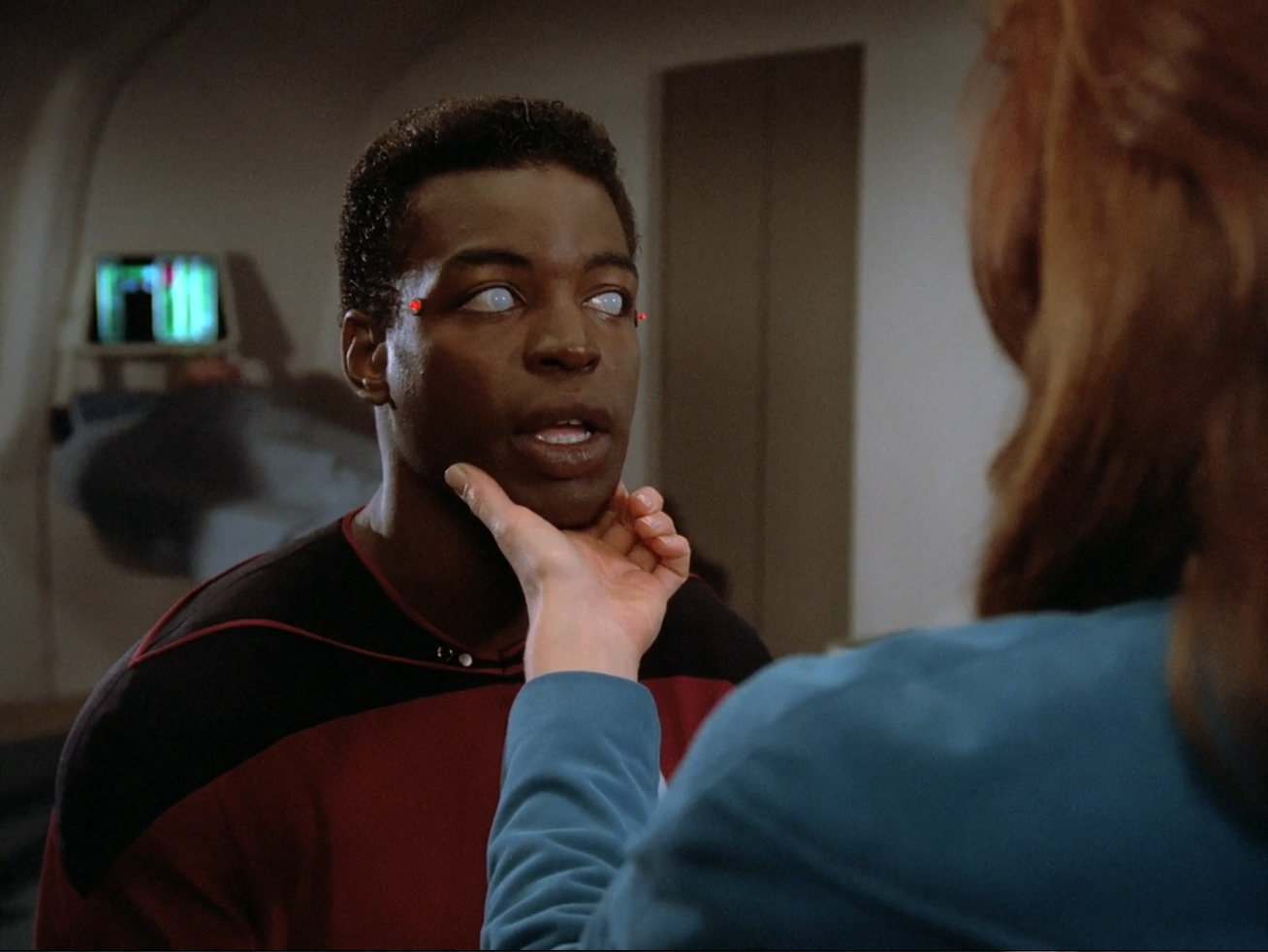
When you've known a character to be played by a certain actor for decades, it's tough to imagine anyone else taking on the role. It might just seem like familiarity talking, but each of the actors who were cast to play the main parts in TNG all seem to be so perfectly suited to the role. Picturing anybody else just seems wrong.
Going with anyone but the final choices for any of the crew members of TNG had the potential to hurt the show, but there is one in particular that would've been wrong for two reasons. Not only does actor Tim Russ not quite seem to fit Geordi LaForge-- which almost happened-- as well as Levar Burton, but it would've prevented Russ from later playing Tuvok on Voyager, a role much better-suited for him.
3 Hurt: Not Waiting For Robin Williams
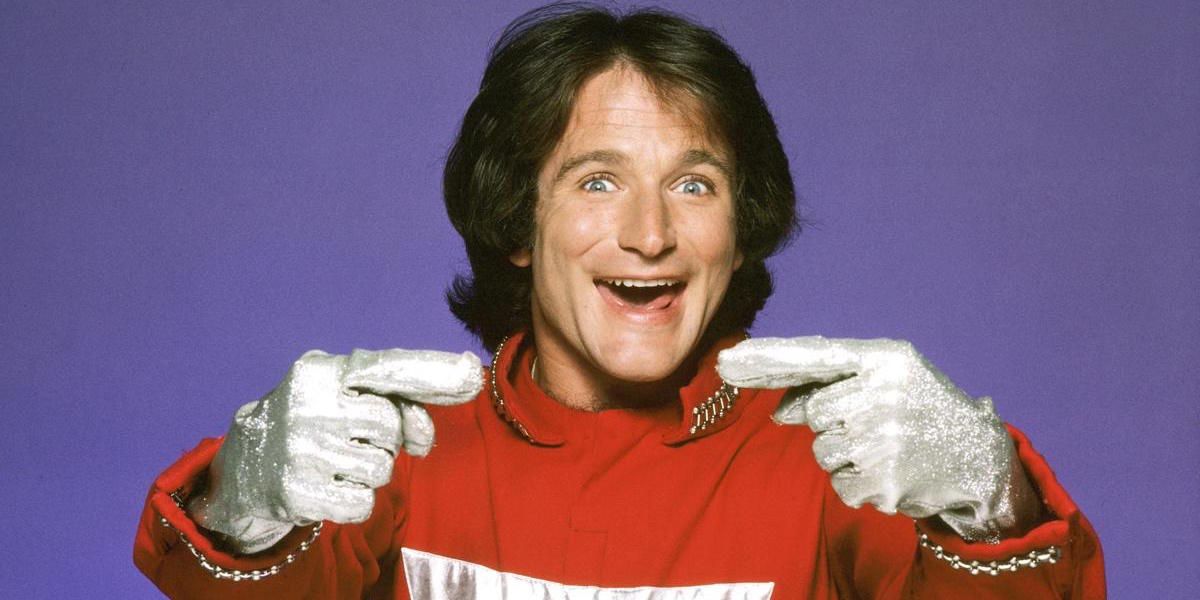
If you believe that there is such a thing as geek cred, there's no denying that legendary actor and comedian Robin Williams had it. Besides being a self-professed gamer, he named his daughter Zelda specifically after the video game character. It doesn't get much geekier than that.
As if that weren't enough, Williams was also a huge Star Trek fan, and wanted to appear in TNG. Producers obliged him of course, and an episode-- "A Matter of Time"-- was written specifically for him. However, Williams' busy schedule made it difficult to carve out the time to film the episode, and rather than waiting until he was available, TNG's producers just recast Matt Frewer (Max Headroom, Orphan Black) for the part. All due respect to Frewer, but there's no replacing Robin Williams.
2 Saved: Riker's Beard
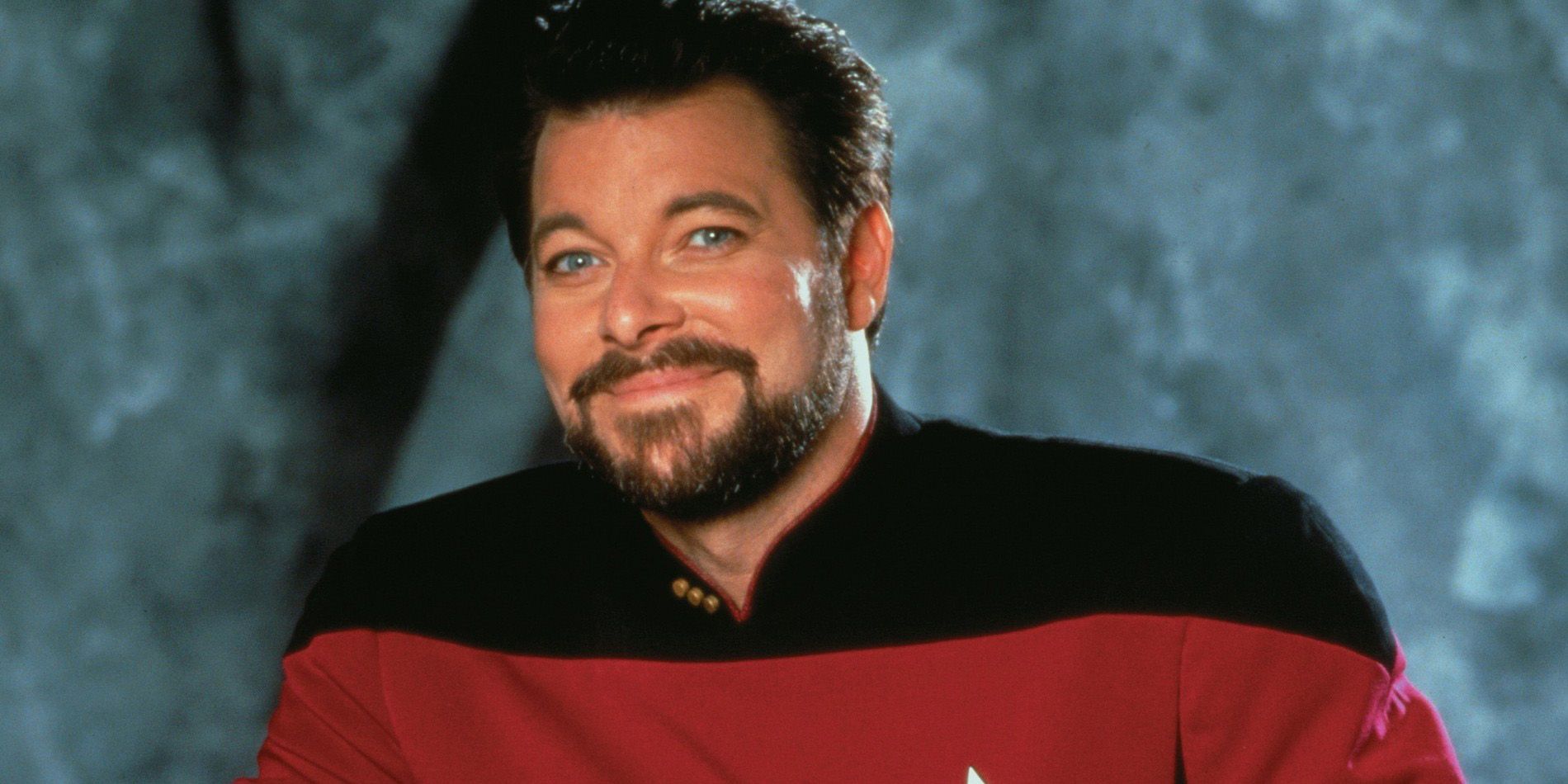
While it's not as well known, there is a TV trope that exists that is the exact opposite of Jumping the Shark, and it's called Growing the Beard-- and sometimes, simply "Riker's Beard." The reason for this is fairly obvious. TNG is considered to have a subjectively good beginning with season three, and that also happened to coincide with Commander Riker actor Jonathan Frakes growing a beard. So whenever a show makes a positive turnaround, it is said to have "grown the beard."
There was actually a surprising amount of consideration given to Riker's beard behind the scenes, with much discussion over how much coverage it should have, how thick it should be, etc. Either way, even if you don't believe in superstition, Riker's beard seemed to have a positive impact on the show and it never went away again.
1 Saved: Not Dismissing All of Roddenberry's Ideas
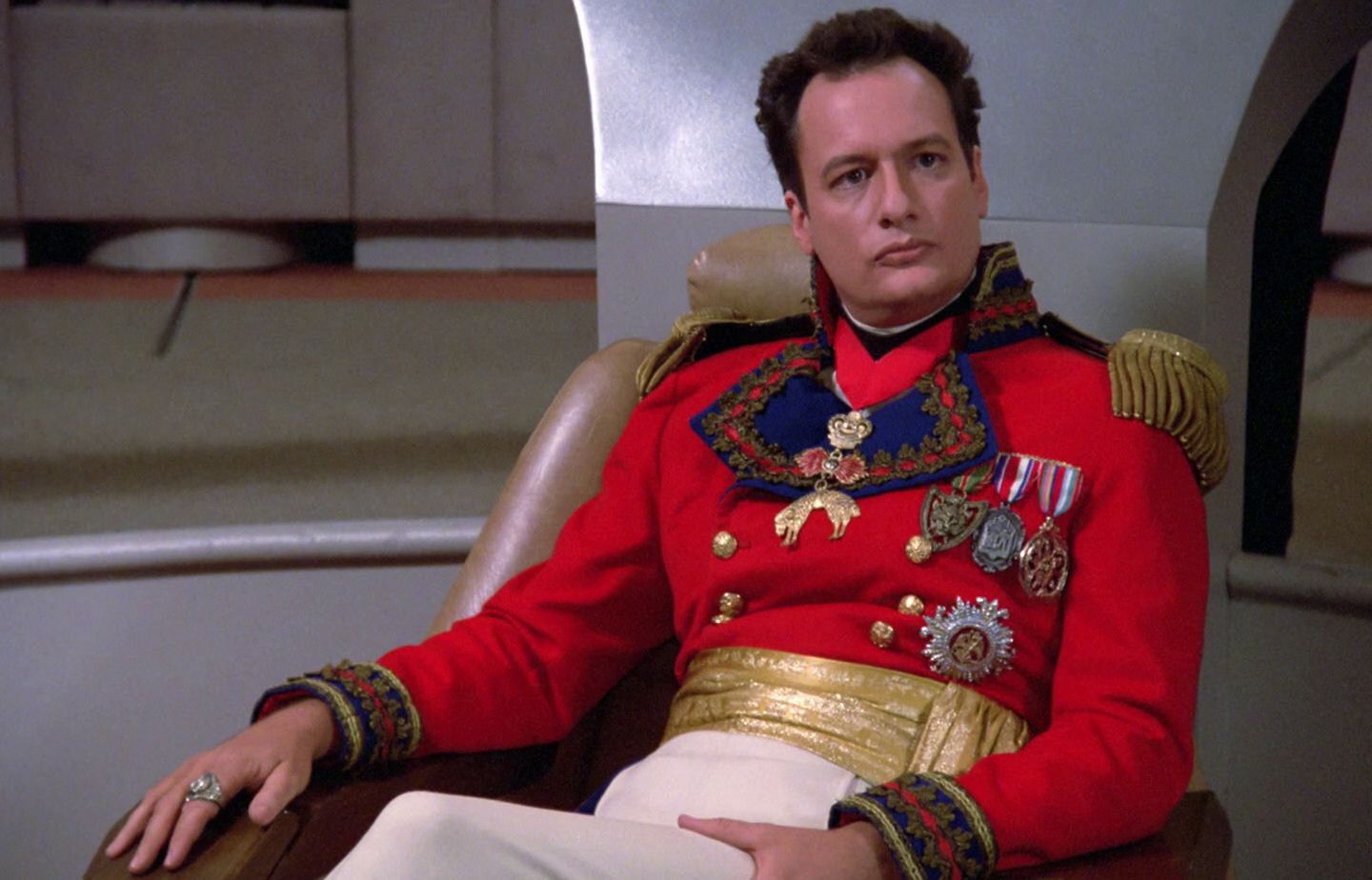
Gene Roddenberry tends to get a bad wrap in regard to his involvement with TNG, and while much of that is warranted, he did contribute some really great ideas to the show-- including the conception of one of the biggest fan-favorite characters in Star Trek history.
When he wasn't trying to clone Kirk or set women's representation in sci-fi back to the 60s, Roddenberry was also coming up with Q, a character of seemingly limitless power and intellect who finds humans fascinating and loves to put them through tests that could mean their extinction just for his own amusement. Portrayed by actor John De Lancie, Q and Picard had some of the best tension and chemistry in TV history. It was always a treat whenever Q would appear on the show. You did good there, Gene.
from ScreenRant - Feed https://ift.tt/2MAw89I


0 Comments